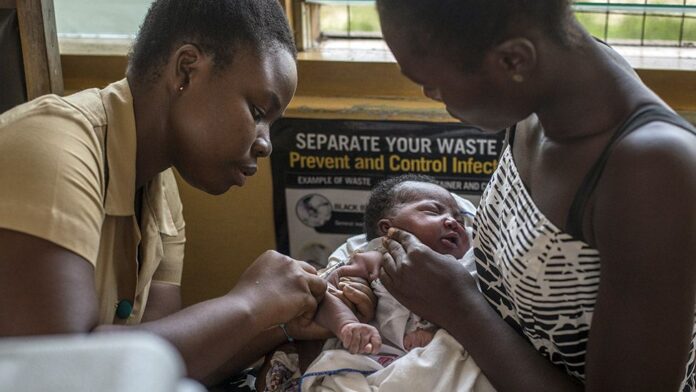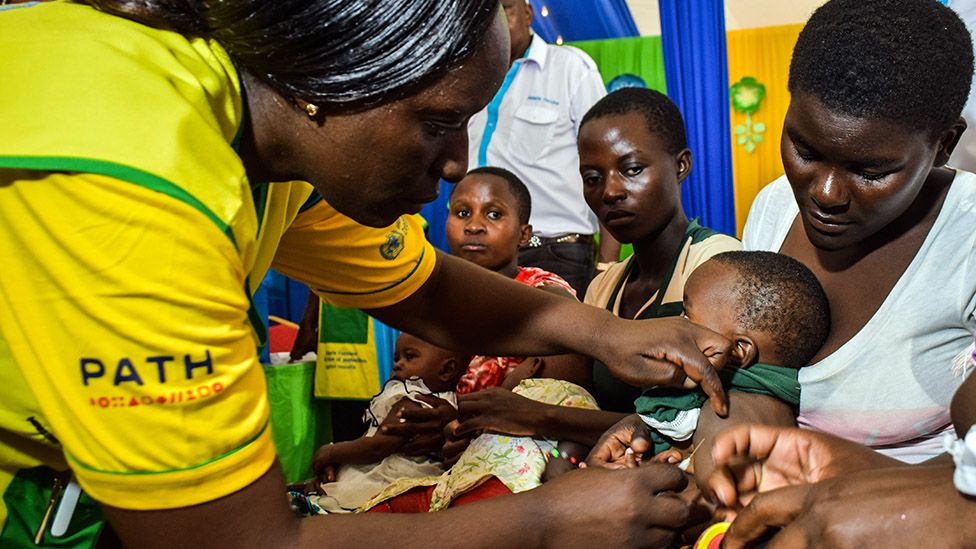
Children across much of Africa are to be vaccinated against malaria in a historic moment in the fight against the deadly disease.
Malaria has been one of the biggest scourges on humanity for millennia and mostly kills babies and infants.
Having a vaccine – after more than a century of trying – is among medicine’s greatest achievements.
The vaccine – called RTS,S – was proven effective six years ago.
Now, after the success of pilot immunisation programmes in Ghana, Kenya and Malawi, the World Health Organization says the vaccine should be rolled out across sub-Saharan Africa and in other regions with moderate to high malaria transmission.
Dr Tedros Adhanom Ghebreyesus, director-general of the WHO, said it was “a historic moment”.
“The long-awaited malaria vaccine for children is a breakthrough for science, child health and malaria control,” he said. “[It] could save tens of thousands of young lives each year.
Saving children’s lives
There are more than 100 types of malaria parasite. The RTS,S vaccine targets the one that is most deadly and most common in Africa: Plasmodium falciparum.
Trials, reported in 2015, showed the vaccine could prevent around four in 10 cases of malaria, three in 10 severe cases and lead to the number of children needing blood transfusions falling by a third.
However, there were doubts the vaccine would work in the real world as it requires four doses to be effective. The first three are given a month apart at five, six and seven months old, and a final booster is needed at around 18 months.
 IMAGE SOURCE,BRIAN ONGORO
IMAGE SOURCE,BRIAN ONGOROThe findings of the pilots were discussed by two expert advisory groups at the WHO on Wednesday.
The results, from more than 2.3 million doses, showed:
- the vaccine was safe and still led to a 30% reduction in severe malaria
- it reached more than two-thirds of children who don’t have a bed-net to sleep under
- there was no negative impact on other routine vaccines or other measures to prevent malaria
- the vaccine was cost-effective
“From a scientific perspective, this is a massive breakthrough, from a public health perspective this is a historical feat,” said Dr Pedro Alonso, the director of the WHO Global Malaria Programme.
“We’ve been looking for a malaria vaccine for over 100 years now, it will save lives and prevent disease in African children.”
Source: BBC

